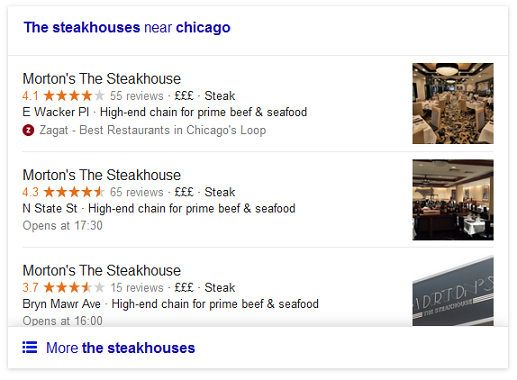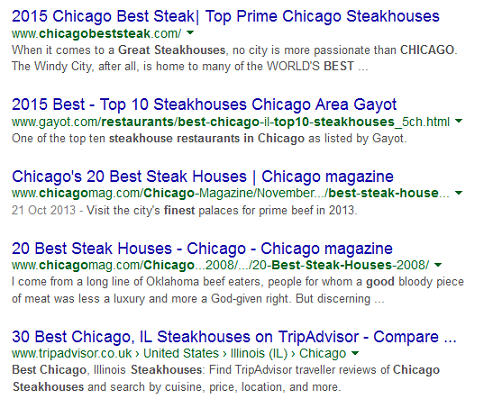
Understanding the Art of Conversational Search
Conversational search has been revolutionizing the search game ever since Google launched its Hummingbird algorithm in 2013.
It’s Google’s latest step in stamping their authority on the search market and has redefined the basics of SEO very quickly.
Sounds pretty important, right? Yes, it sure is! That’s why it’s time for you to get with the program!
What Is Conversational Search?
Funnily enough, conversational search pretty much does exactly what it says on the tin!
Up until recently, an internet search for steakhouses in Chicago would have been typed in as “steakhouses chicago top best”. Now, search engines would struggle to differentiate between all the terms and the results would be average at best. Google could see that it wasn’t meeting peoples’ needs, so decided to intervene.
Enter Hummingbird!
The complex algorithms of Hummingbird take your search query and give all the terms context. This means you can now have a chat with Google rather than throwing together a load of search terms and hoping for the best. If we go back to the steakhouse scenario this means we can type in “what are the best steakhouses in chicago”.
It’s like you’re talking to a friend and having a… conversation!
What Does Conversational Search Do?
These days it’s more a case of what doesn’t it do!
And this is no joke. Let’s take a look at our steakhouse query again.
Typing this into Google now brings up a wealth of info:
- First, there’s the info card which instantly presents you with a list of the top steakhouses in Chicago complete with ratings.
- Secondly, there’s an amazing list of search results which deliver exactly what you’ve asked for.
How Do You Tackle Conversational SEO?
Now, like me, you’re probably always striving to go the extra mile for your customers, so building conversational SEO into your site is crucial for giving them what they want.
But how do you do it?
Many people have assumed that this means an emphasis on long tailed keywords, so instead of “best steakhouse chicago”, you would chase keywords such as “what are the best steakhouses in chicago”.
It makes sense, but just think about it. With Google’s ‘(not provided) keyword’ direction, are keywords really as vital as they once were? Sure, they still have a place, but it seems as though Google wants to quietly put them out to pasture.
Instead, I think it’s a better idea to consider the questions being asked about your business such as: Who, What, Why, When, Where and How?
How can you best answer these questions?
With great content.
Yes, once again, we are reminded that content is king. If you can make your content highly relevant to a certain question then you’re going to get bumped up the search engine results page (SERP).
Concentrate these efforts on your landing page, product info and, most importantly, create a blog. A blog is a great platform to answer the most pressing questions of consumers and marks you out as an authority.
The Future of Conversational Search
As the online world shifts closer and closer to a dominance for mobile search, so conversational search will become optimized for this new landscape.
Apps such as Apple’s Siri kickstarted the craze for conversational search and proved that voice activated commands had a future. I mean, voice recognition is now so much more advanced that the awful software we had in the 90s. Now you can speak into your phone and it actually understands you.
This is why you really need to start optimizing your content for mobile devices. If you can engage more people then you’ll rank higher in the SERP and be ready to answer users’ questions before anyone else.
And don’t forget that conversational SEO requires the use of a whole new set of keywords. This means learning the best phrases to build into your content. Unfortunately this also means a lot of old content needs to be rewritten to keep a good SEO score.
Due to the, uh, ‘mobile’ nature of mobile internet, local SEO will become crucial as it marks your business out as the best option to meet users’ needs quickest. It’s time you really get to grips with local SEO if you want to stay relevant.
Finally, you’re going to have to brush up on your multilingual skills. Google provides its results in 42 different languages and consumers are more likely to speak in their native tongue when using voice search, so you need to consider how key this is for your users.
Start the Conversation
I think I’ve demonstrated that conversational search is already making life that little bit more satisfying for internet users, so you need to start optimizing your content to match this new frontier.
Content, local SEO and a grasp of multiple languages appear to be the most vital aspects of SEO in the modern age, so don’t get left behind.




